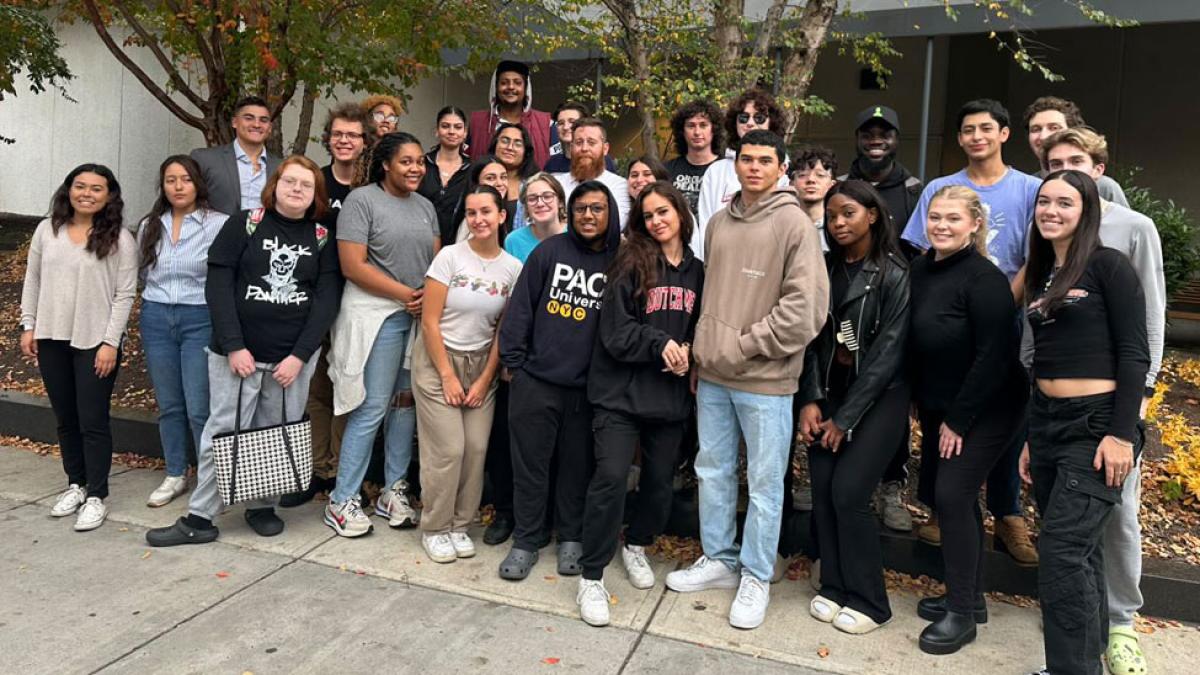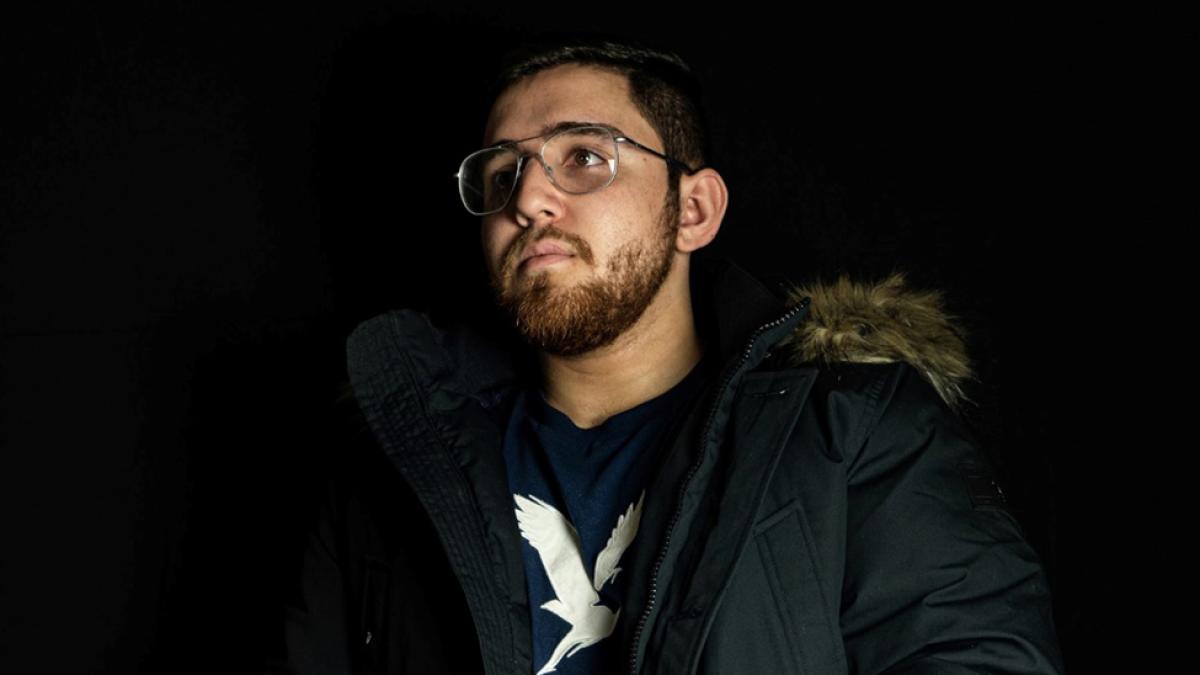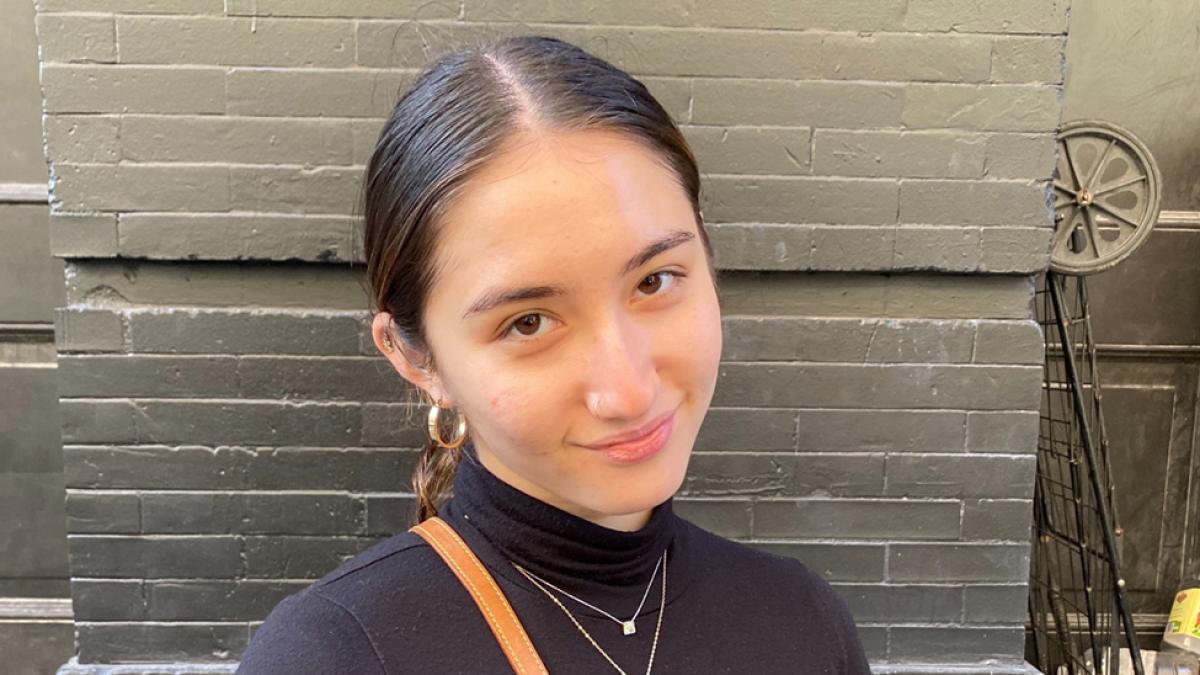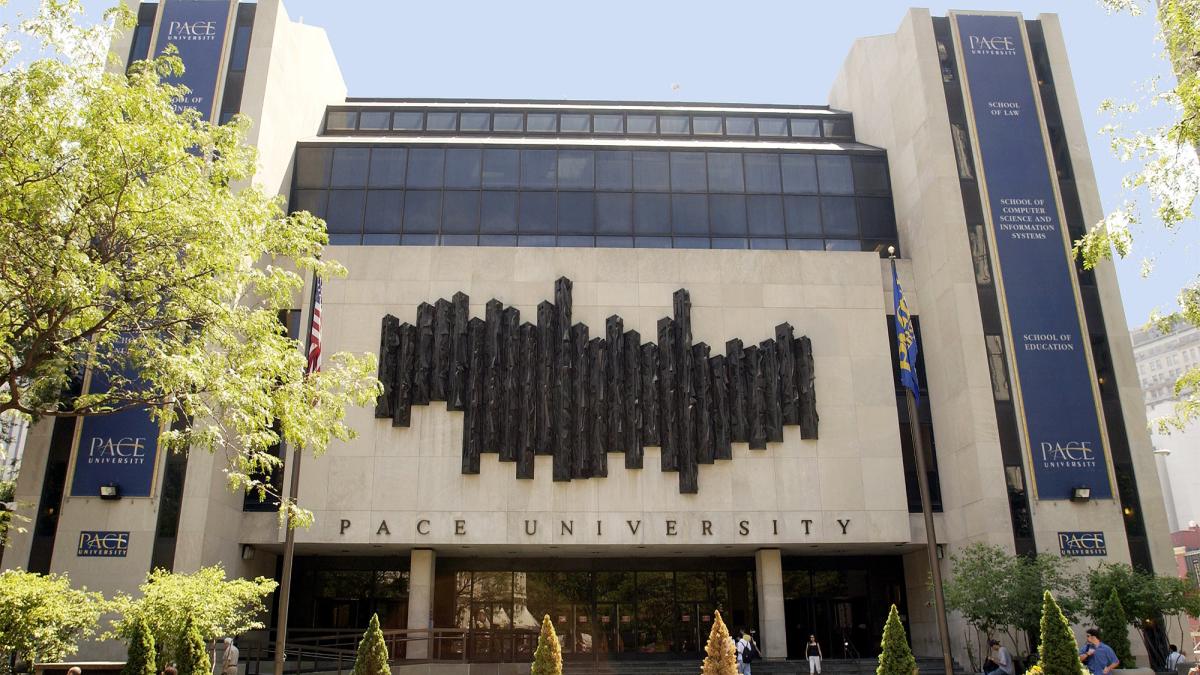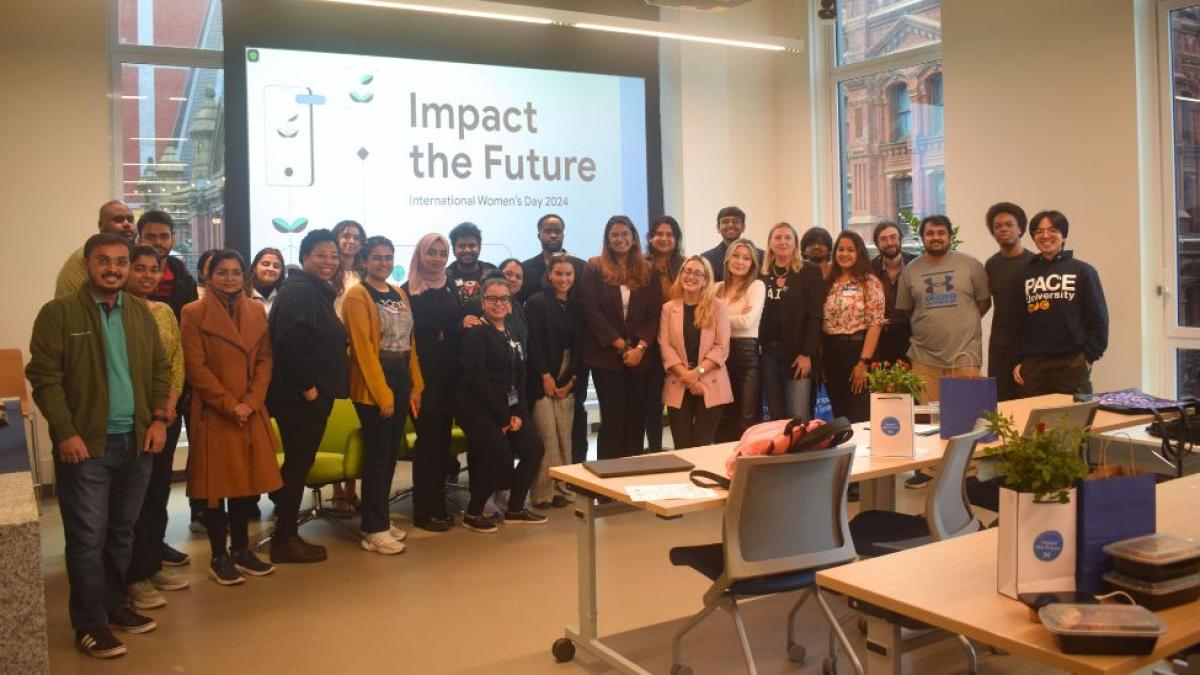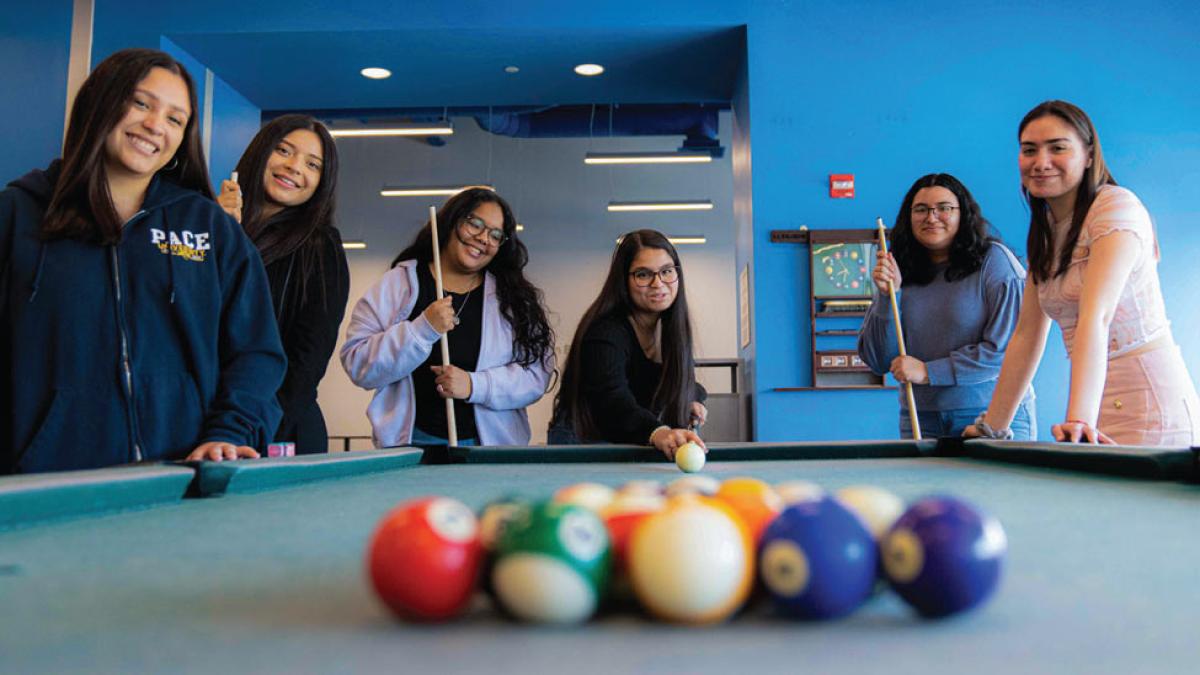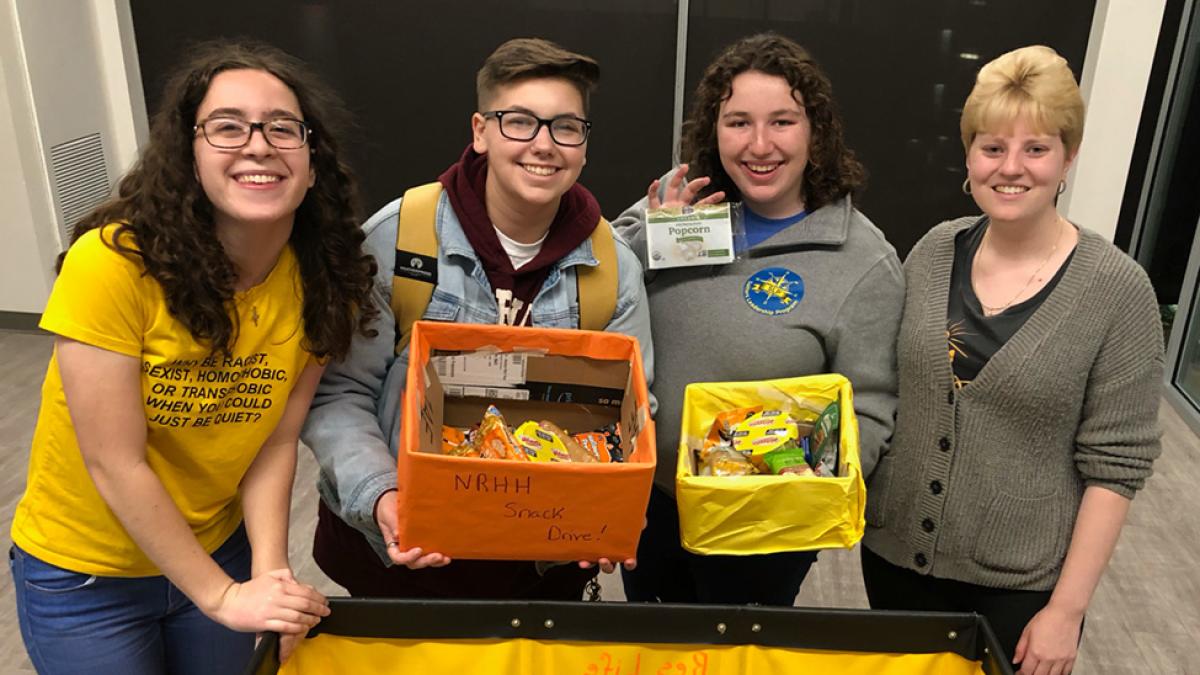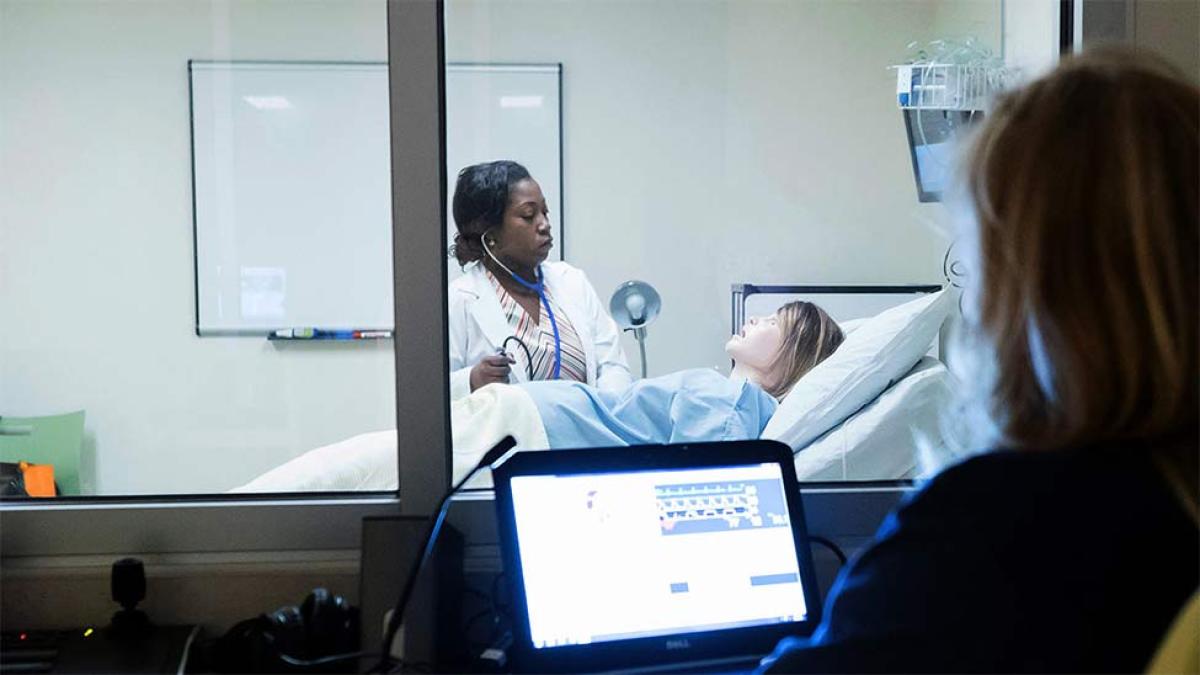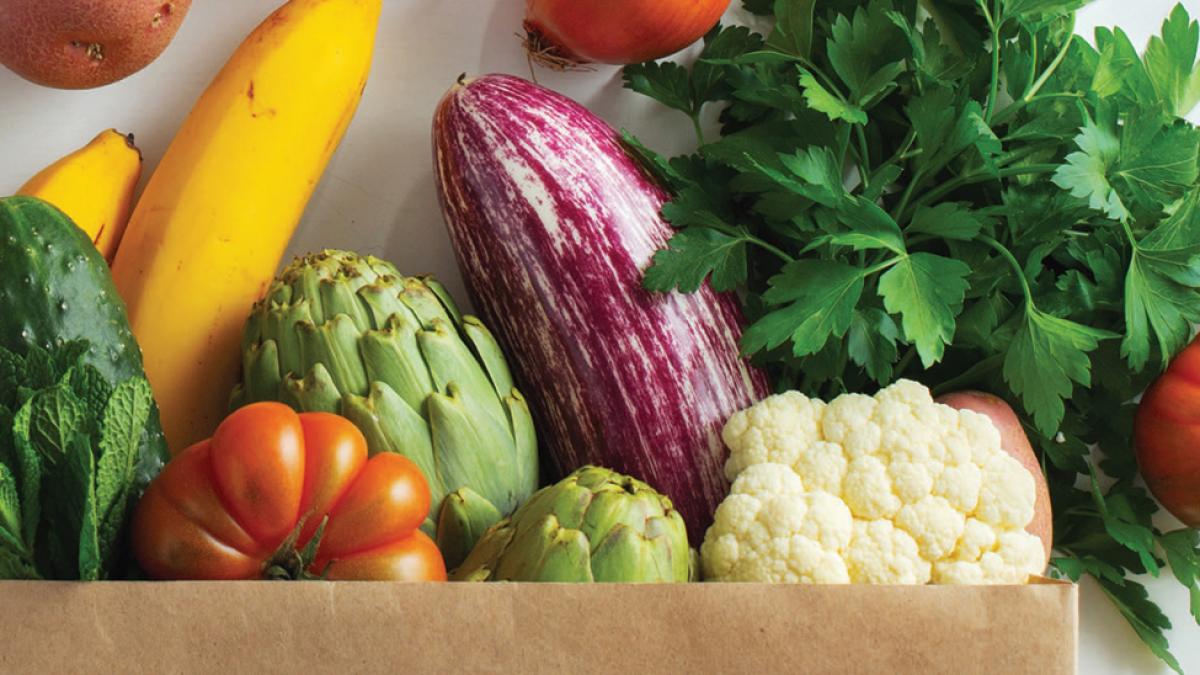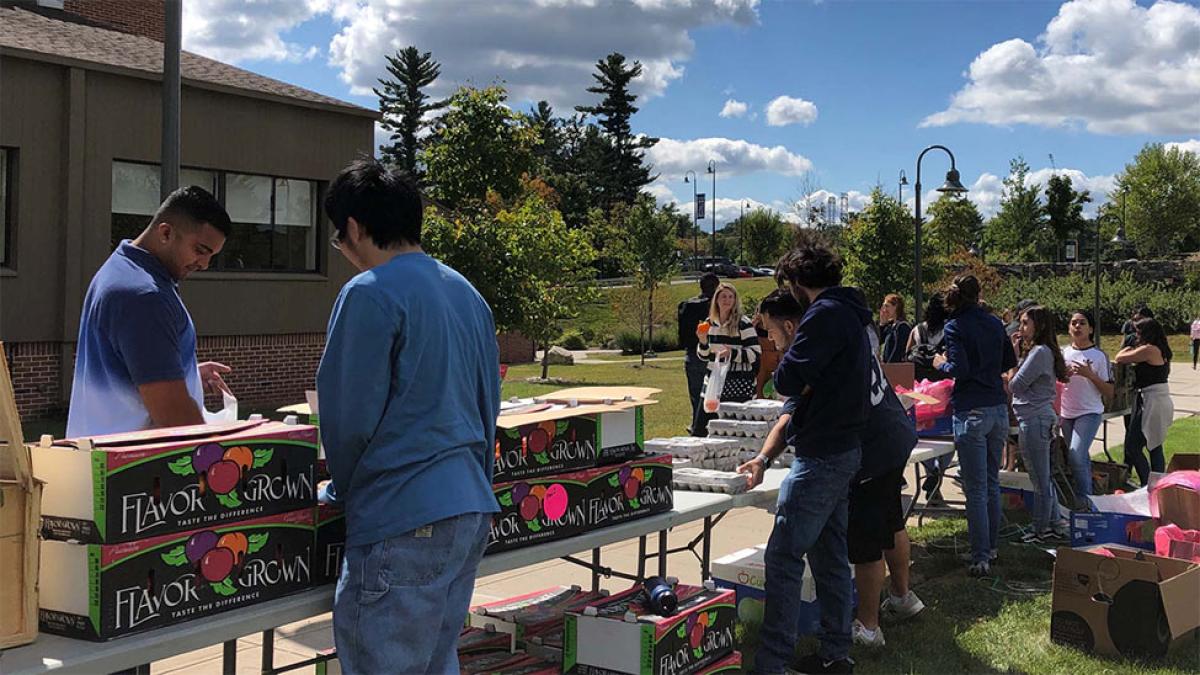If there’s one problem the nonprofit world would love to solve, it’s how to increase funding. Information technology professor, Namchul Shin, researches the impact of social media on charitable donations.
Giving Tuesday 2022: Recap
On Giving Tuesday, the Pace Community rose to the occasion. 1,204 donors from 34 states and 3 countries helped raised $417,925, which will go on to support our students make the most of their educations and their lives beyond graduation.
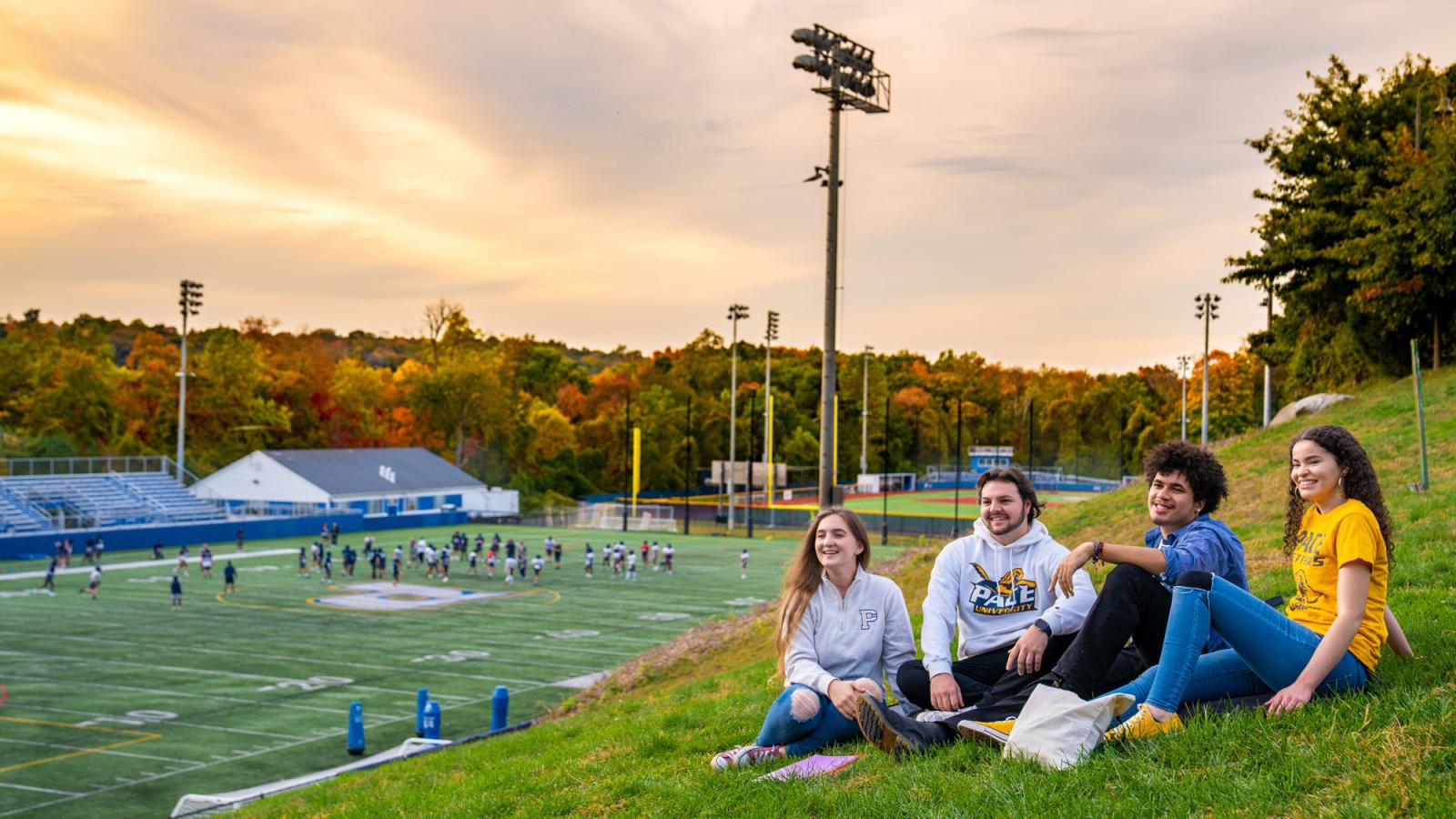
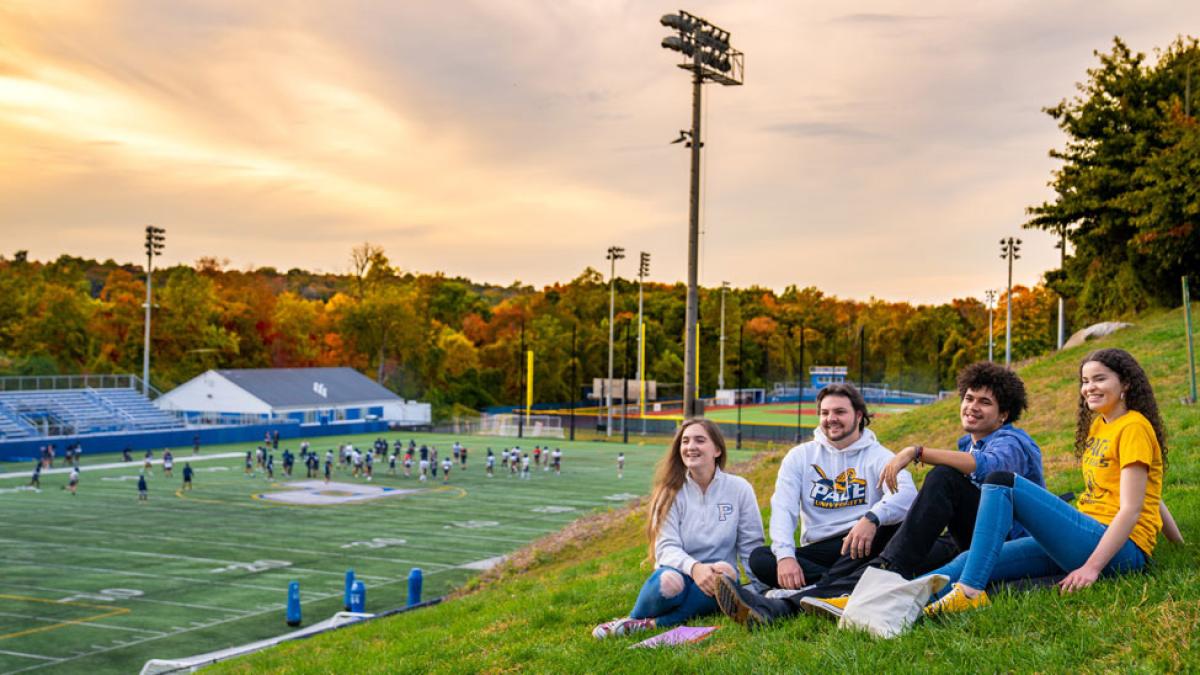
This Giving Tuesday, the Pace Community answered the call and helped us surpass our goal of 1,000 gifts and raised an incredible $417,925.
1,204 Alumni, parents, faculty and staff, friends, and students came together to show their support for Pace University. These donors, hailing from 34 states and 3 countries, not only offered gifts, but also shared why they felt inspired to give. Some of those reasons include:
I give to Pace to give opportunity.
—Theodore W. '68
I know that Pace students and alumni have a unique sense of grit about them. We are go-getters, and I want to be able to support current Pace students in achieving their goals!
—Gabriella F. '16
I was a first-generation college student. I want to be sure there are opportunities for other students to have what I did.
—Susan B. '79, staff
I give because our students become alumni who do amazing things in the world.
—Michele C., staff
I'm in a position to give back because of what Pace gave me decades ago...A great education.
—Damian S. '87
Pace is allowing me to pursue my MA/HEA in a University where diversity is celebrated.
—Sarah F., student
Because I love Pace!
—Billy Y. '02
Whether it was because of Pace's “life-changing opportunities,” or the fact that “our students become alumni who do amazing things in the world,” or simply because “I love Pace”, our community has shown just how much the believe in Pace. The $417,925 raised will go on to support innovative programs across all campuses, enhance the student experience, and help our students achieve their dreams.
Missed Giving Tuesday but are still looking for a way to support Pace? Make your gift today.
More From Pace
If you’re interested in supporting the NYC Campus food pantry, Provisions, here's how you can help. Check out this list of most-wanted items to help combat food insecurity on campus.
For more than a decade, Pace’s Model UN teams have been competing on the national stage. This year was no different! Back again with some more wins under their belts, Pace’s Model UN team shares their winning experience at this year’s national conference in Washington, DC.
Start the Conversation, Let Freedom Ring
When Pace student Mikaylah Mgbako hosted an event for Social Justice Week, she was looking to put her desire for advocacy into action. What she found was an opportunity to grow, as she opened the door for fifty students to discuss difficult topics such as race, inequality, and injustice.

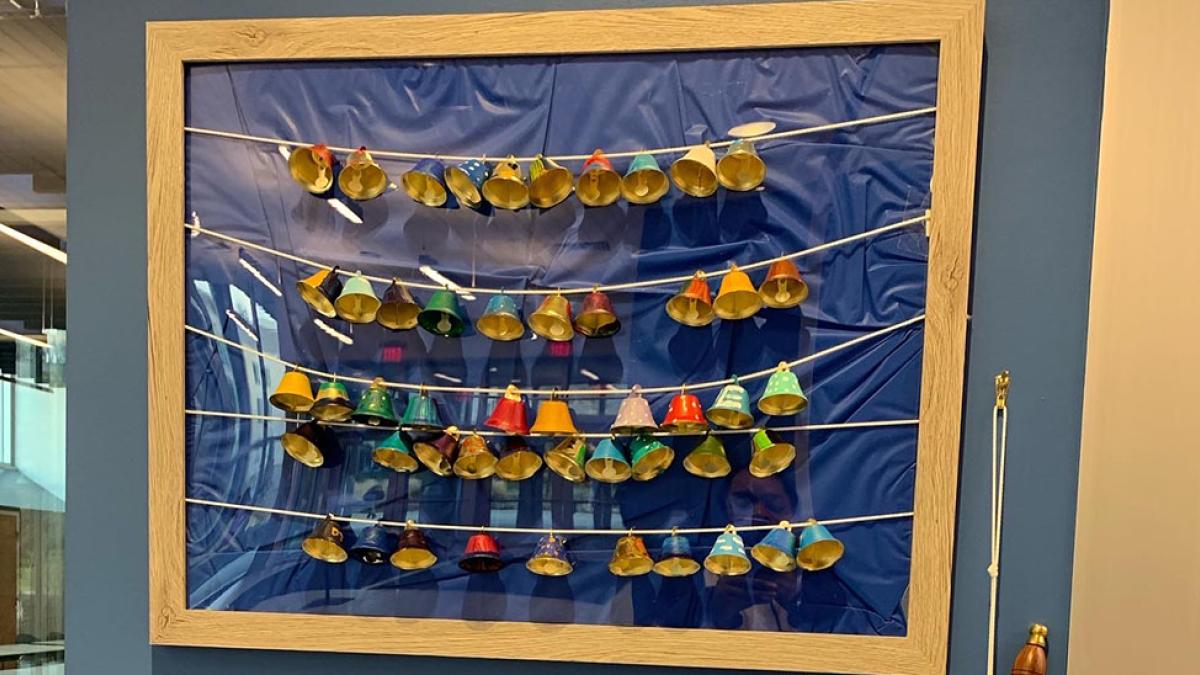
During Pace’s third annual Social Justice Week, 50 students gathered in Alumni Hall to paint bells inspired by three words Dr. Martin Luther King Jr. repeated over and over during his historic “I Have a Dream” speech—‘let freedom ring.’
The event was conceptualized by Mikaylah Mgbako ’25, second-year nursing student and current Resident Assistant on the Westchester Campus. For a while, something had been missing for Mikaylah—an outlet for her love of advocacy and volunteerism. “My high school was so small I was able to do so much for them,” she explains. “Pace isn’t super big but in comparison I felt so small and like I couldn’t help anyone. When my Honors advisor sent an email out about the Social Justice Week events, it felt like divine inspiration. Here was a way I could get back to helping people.”
When my Honors advisor sent an email out about the Social Justice Week events, it felt like divine inspiration. Here was a way I could get back to helping people.
Soon, an idea took shape. She would facilitate an event where fellow students could paint bells, evoking King’s famous words, and she would put them on display for Pace Community. But she wanted to do more than create a static exhibit, she wanted to dig deeper. “My event allowed people to come and discuss topics related to race, ethnicity, and social injustice and inequality in a common space, while painting bells and enjoying light refreshments,” she says.
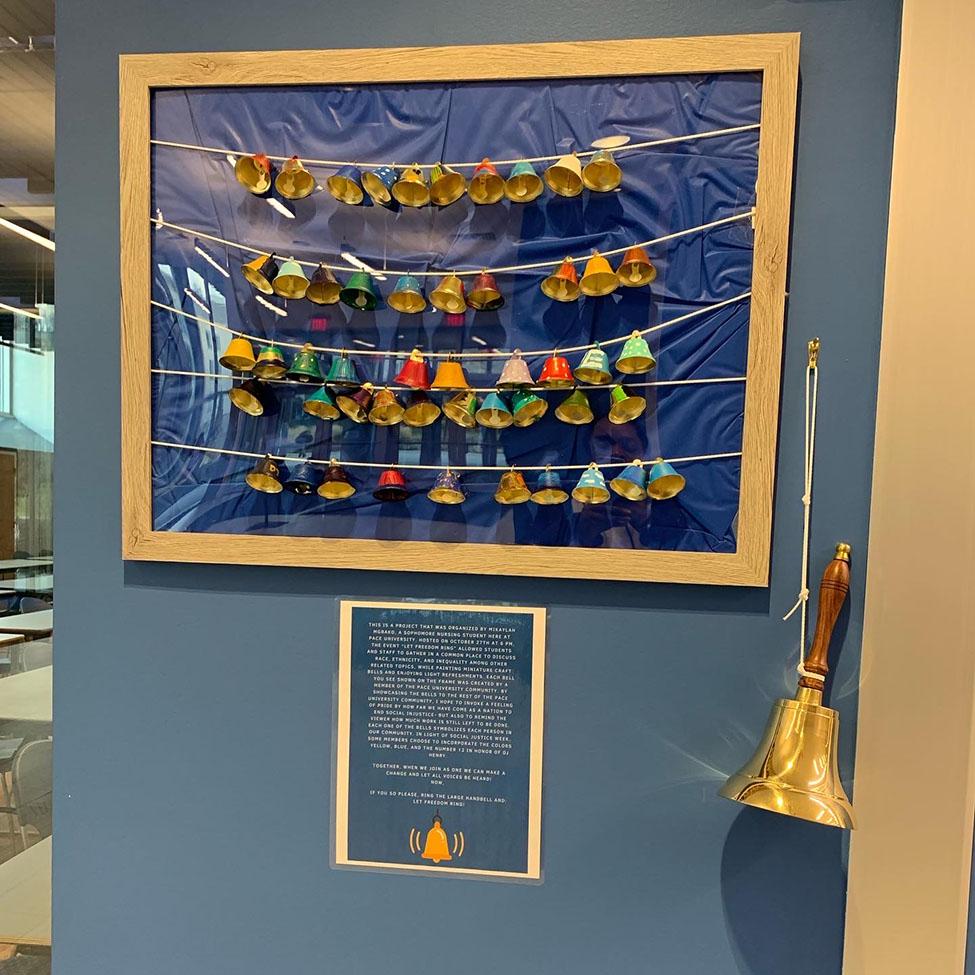
Advisors for Social Justice Week were concerned that she did not have the backing of a student club or org, but that wasn’t what worried her. “I knew I could do it on my own,” says Mikaylah. It wasn’t the event itself that pushed her out of her comfort zone, but the conversations had while she and nearly 50 other students painted bells and spoke on sensitive topics of race and inequality.
“I’ve done more ‘backseat advocacy’ through marches or fundraising, so I was never the type of person to sit in a room and have conversations with people. And I was actually really uncomfortable,” she admits. “As an RA, many of my residents look up to me. But as a woman of color, many of my residents don’t have my experience facing the same injustices, either based on race or gender. Both facts made me feel nervous about participating. Then I realized if I was uncomfortable, I can only imagine how the people who just stopped by might feel.”
Why not have these conversations and understand where your peers and friends come from?”
She explains that the discomfort seemed to come from the wide mix of students present, and the uncertainty of how people might respond to difficult topics. On one hand, she said she found this challenging, and a little sad. “I feel that if I was speaking with peers who looked like me, other people of color, I’d feel like I was in a safe space to share. It showed me that we’re not having these conversations as often, and experiences like this need to happen more.” On the other hand, despite the discomfort, students stuck around for the painting, and for the conversations. “Everyone was really respectful. My friend who came with me shared a lot of her feelings. Sharing in a student-setting kept it casual and very respectful.”
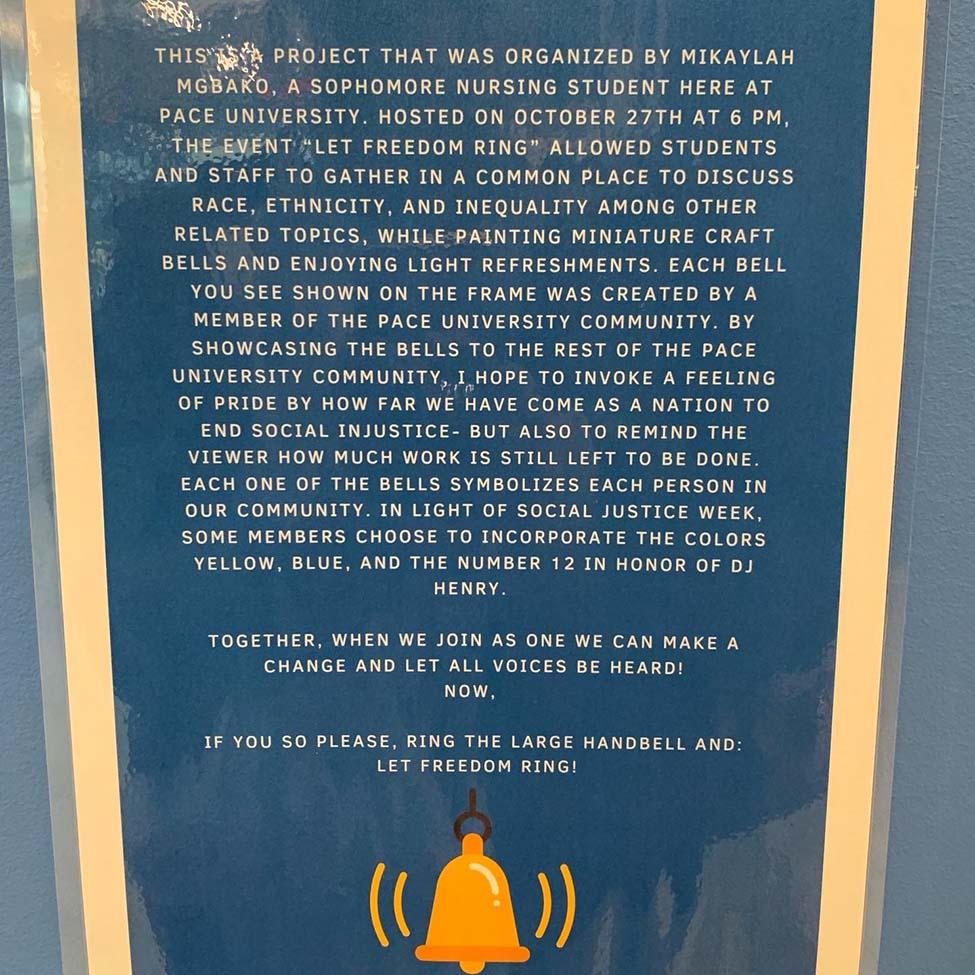
Mikaylah purchased 50 bells for the event (with funding granted by the Social Justice Week Committee) and all 50 were painted and are now proudly displayed in the Kessel Student Center, alongside a large bell students can ring. “The message when people see it is that all these people from the Pace Community were able to come together and do something where they bonded, where they could listen and have these conversations,” Mikaylah explains. And even though the conversations were difficult, she hopes for more of them. “It’s how we can understand our neighbors. At Pace, we’re living in these communal-style homes and residence halls. Why not have these conversations and understand where your peers and friends come from?”
It’s a loud reminder—don’t forget about this!”
As for that large bell next to the exhibit, Mikaylah wants you to ring it, and ring it loud. “I hope when people ring the bell it’s really loud,” she says with a laugh. “I hope it makes people wonder what the noise is, so they come look at the exhibit. They can think about how far we’ve come, and hopefully it’ll inspire the next person. It’s a loud reminder—don’t forget about this!”
More from Pace
During his time in uniform, Nicholas Lotto’s mission was to consider the welfare and mental health of his fellow Marines. Now, as president of Pace’s chapter of the Student Veterans of America, his old mission has a new backdrop—improving mental health and community inclusion of student veterans on campus.
Mandi Karpo ’23, editor-in-chief of The Pace Press, recounts the extraordinary opportunity to attend the recent New York gubernatorial debate as the only student journalist in attendance.
Pace University has been recognized by the ALL IN Campus Democracy Challenge (ALL IN) as a 2022 ALL IN Most Engaged Campuses for College Student Voting.
Tackling the Tax World with Ashia Thompson '18
Ashia Thompson '18 talks about why the Lubin School of Business was the perfect fit for graduate school, what it was like working at two of the biggest accounting firms in the world, and why she decided to leave a Big Four to start her own successful firm.

The Lubin Link Podcast

Ashia Thompson '18 details why the Lubin School of Business was the perfect fit for graduate school, what it was like working at two of the biggest accounting firms in the world, and why she decided to leave a Big Four to start her own successful firm.
This episode was recorded on December 1, 2022
Tune into the Lubin Link podcast to hear how guests went from go-getting Lubin students to successful entrepreneurs, social media mavens, directors, CEOs, and beyond. They offer their best tips to students and share how you can make the most out of your #LubinLife.
Vito Arango '23: A Team Player
After graduating from Queens College with a Bachelor’s Degree in history, Vito Arango decided to pursue a paralegal certificate and explore a career in the law. Vito spent over three years working as a legal secretary/paralegal before deciding it was time to pursue law school.
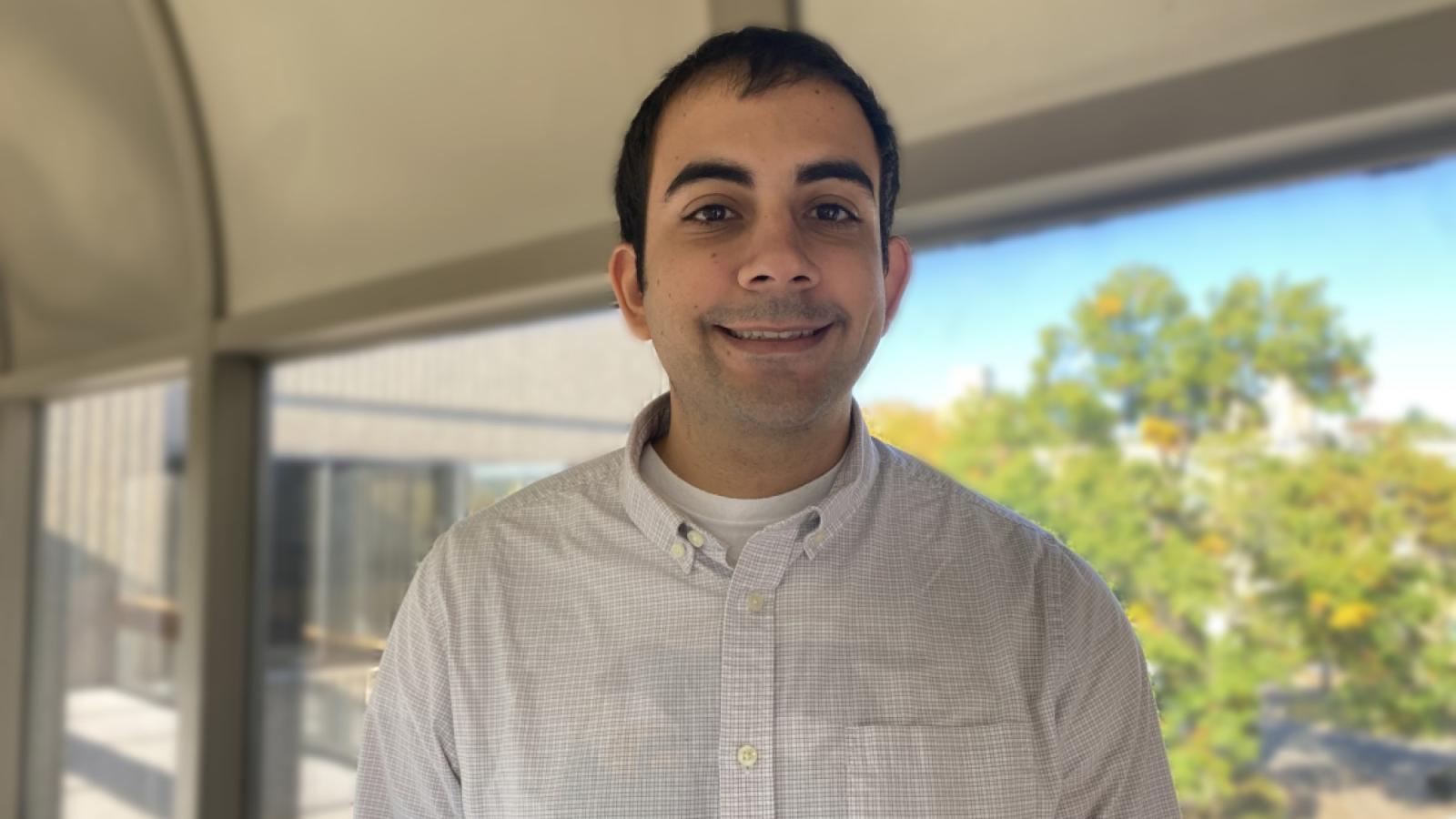
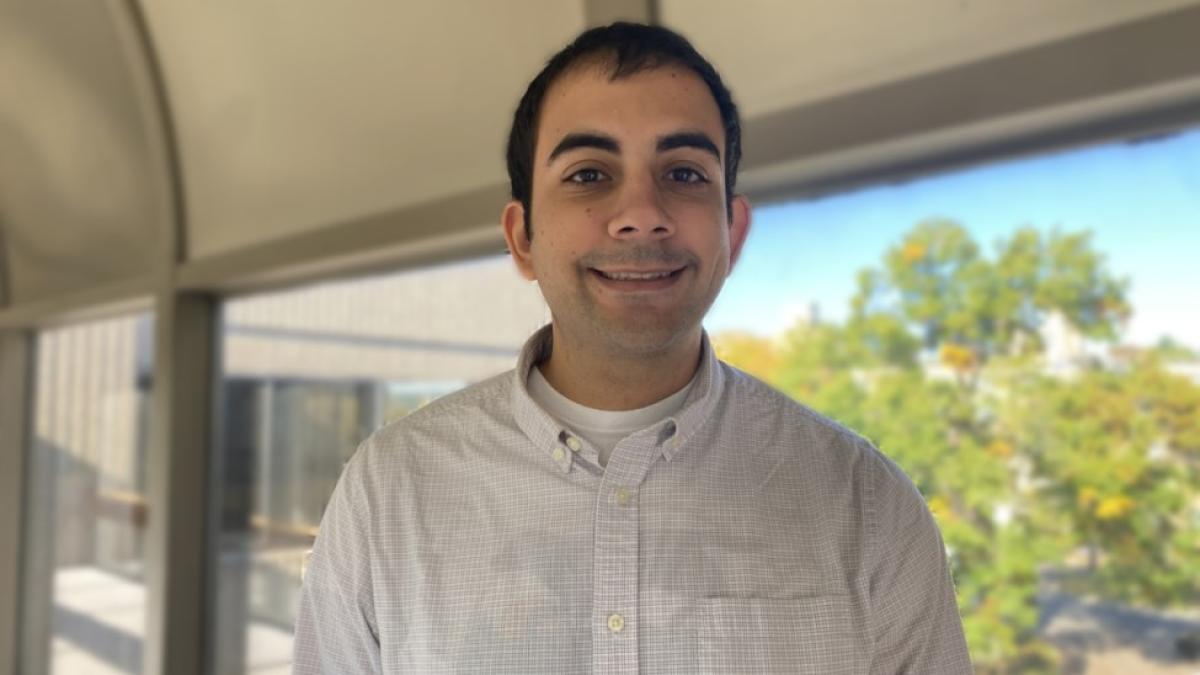
After graduating from Queens College with a Bachelor’s Degree in history, Vito Arango decided to pursue a paralegal certificate and explore a career in the law. Vito spent over three years working as a legal secretary/paralegal before deciding it was time to pursue law school. “I am very much happy with my decision to attend law school and specifically Haub Law. I have always very much been a team player, so finding those values at a law school as important to me. In my time here I have been very much blown away by the dedication and effort that my colleagues put forward and the sense of community surrounding the professors, staff, and classmates.”
During his time at Haub Law, Vito found a passion for employment and labor law. In his 2L year, he participated in the Legal Services Externship and this past summer he worked as an intern for the New York City Department of Health and Mental Hygiene, General Counsel-Employment Unit. Vito noted, “This summer, my focus was employment law through the context of the government/administrative body. I found it very interesting and was able to learn a lot from a different perspective.”
Now, as a 3L, Vito is enrolled in the Equal Justice America-Disability Rights Clinic. He is also serving as the productions editor for the Pace International Law Review and as a 3L representative for the Public Interest Law Student Organization. After law school, Vito hopes to continue his passion for employment and labor law and gain employment in a non-profit or government agency. “There is an innate sense of fairness within the areas of employment and labor law and that goes along with the importance I put on being a team player and having a sense of community. I look forward to bringing this perspective into my future career as an attorney.”
Pamela Guerrero: A Passion for Social Justice
As a 3L, Pamela was awarded a prestigious Immigrant Justice Corps Fellowship post-graduation. Today, she is following her dreams as she works with the Refugee & Immigrant Program of The Advocates for Human Rights.
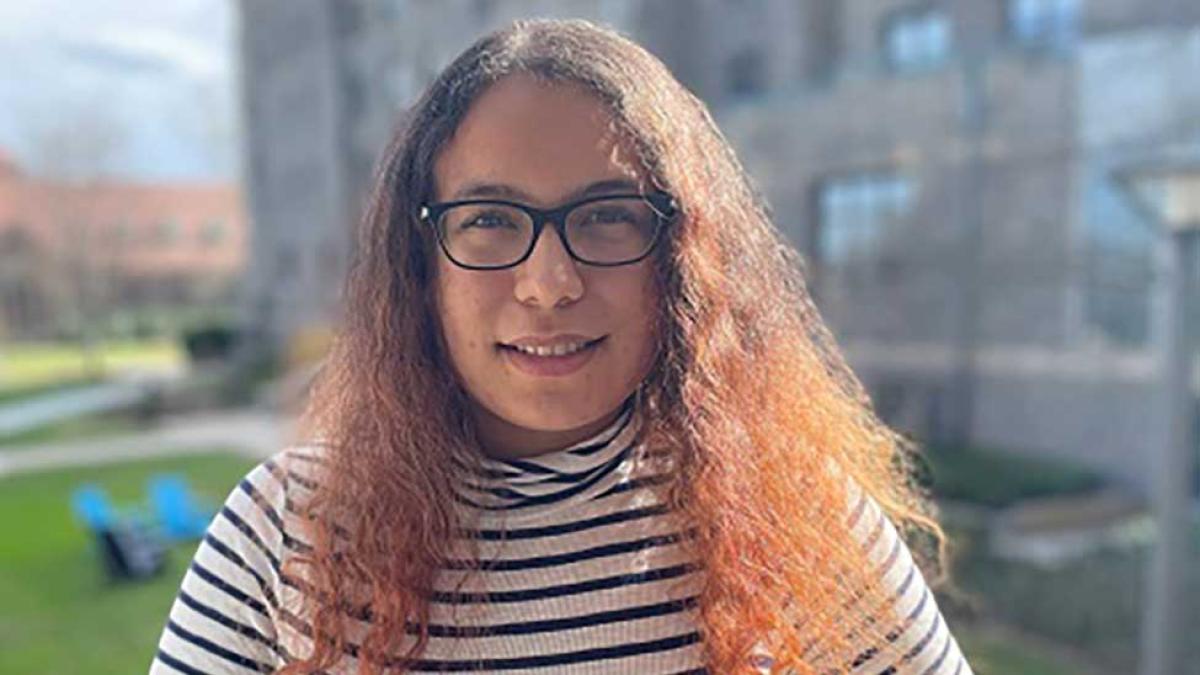
A first-generation US Citizen, Pamela Guerrero entered law school with a passion for social justice and immigration law. Throughout law school, she followed that passion by participating in Haub Law’s Access to Justice Seminar, the Access to Justice Lab, and the Immigration Justice Clinic. As a 3L, Pamela was awarded a prestigious Immigrant Justice Corps Fellowship post-graduation. Today, she is following her dreams as she works with the Refugee & Immigrant Program of The Advocates for Human Rights.
“I am a first-gen US citizen from Dominican parents who originally moved to Washington Heights, Bronx, New York, but then settled in Westchester. I came to law school because I learned of many socioeconomic inequities in the US while attending undergraduate school and wanted to be in an advocacy position to be able to address these issues. I was especially concerned with the immigration system in this country and wanted to become an immigration lawyer to provide newly arrived children and adolescents with the protection they need to thrive in the US. Geographically, Haub Law was the perfect place for me and academically I was impressed with the variety of diverse learning opportunities. The Immigration Justice Clinic and both the Access to Justice Seminar and Access to Justice Lab at Haub Law were integral in fostering my passion for immigration law and social justice.”
Pamela was an inaugural student participant in the curricular components of the Pace Access to Justice Project (Pace A2J), which is housed and coordinated within Haub Law’s Public Interest Law Center. Pace A2J serves as a hub for community collaborations, programs, scholarship, policy initiatives, and hands-on innovative academic and non-credit bearing experiential law student and alumni opportunities. The A2J Seminar provides students with an opportunity to hone in on their critical thinking, research, writing, and editing skills required for legal practice – all as related to an access to justice/social justice issue of the student’s choice. Whereas, the A2J Lab provides law and computer science and design students an opportunity to collaborate on a social justice/access to justice concerns and provide a real life solution to these issues. Pace A2J is designed to more actively engage students in learning about and contributing to real-world efforts to address the access to justice gap and Pamela feels that it does just that. “Participating in both the Access to Justice Seminar and Access to Justice Lab improved my educational experience, because it gave me a way to tangibly utilize the law for the general betterment of society,” said Pamela. “A lot of academic work in law school is very theoretical, which creates a disconnect between what is being taught and actual legal problems that exist outside of the academic setting. Both the A2J Seminar and A2J Lab bridged that gap by having participants use the law to create an application that could potentially be used by actual people in the future, having a tangible benefit to them.”
“A lot of academic work in law school is very theoretical, which creates a disconnect between what is being taught and actual legal problems that exist outside of the academic setting. Both the A2J Seminar and A2J Lab bridged that gap by having participants use the law to create an application that could potentially be used by actual people in the future, having a tangible benefit to them.”
In addition to the hands-on educational experience that Pamela feels Pace A2J provided, she notes that the interdisciplinary Lab, where students designed a tool to address low-income tenant habitability rights, was a notable curricular innovation. The Lab was co-taught by Professor Elyse Diamond at Haub Law and Andreea Cotoranu, Clinical Professor and Director of the NYC Design Factory in Pace University’s Seidenberg School of Computer Science and Information Systems. Pamela notes, “I learned from collaborating with computer science and design students from Seidenberg students that it's not enough to simply have an idea . . . it is also important to address possible limitations such as tech limitations. It was extremely valuable to have varying expertise and perspectives throughout the Lab and I feel we came up with a better end result because of this.”
Pamela remains committed to social justice issues today and credits Pace A2J with cementing that commitment. “My participation in the Access to Justice Seminar and Access to Justice Lab reconfirmed my commitment to interdisciplinary social justice work by reminding me that many social issues are interconnected. Housing problems are very relevant to my current position as an IJC Fellow, because a lot of court notification is reliant on if a client has a stable address and a lot of client's worry about housing first before anything related to immigration work. Addressing injustice in housing is a huge step in immigration work since it gives clients a chance to thrive in a stable environment as they prepare for their ongoing immigration case.”
Man Arrested After Worker Sickened Cleaning Powdery Substance at Midtown Hotel
"It begs the question as to why was this person still on the street," former NYPD lieutenant and current pace University professor Darrin Porcher said. Porcher also questioned how the suspect got into the room, in the first place. Police sources said the family who previously occupied the room lost a key with the hotel room number on its sleeve. They checked out Sunday. It's believed the suspect found the key. Police have video of him arriving Monday night and leaving Tuesday morning. "We should have greater fortifications and ramifications within that hotel security system to deactivate that key. Why was the key not deactivated on Sunday, when the guests departed the hotel?" Porcher said.
#PaceGoGetters: Tyra Prophete, RN
"You have to find that passion every day," says College of Health Professions alumna Tyra Prophete, RN. "I always knew I wanted to advocate for people."
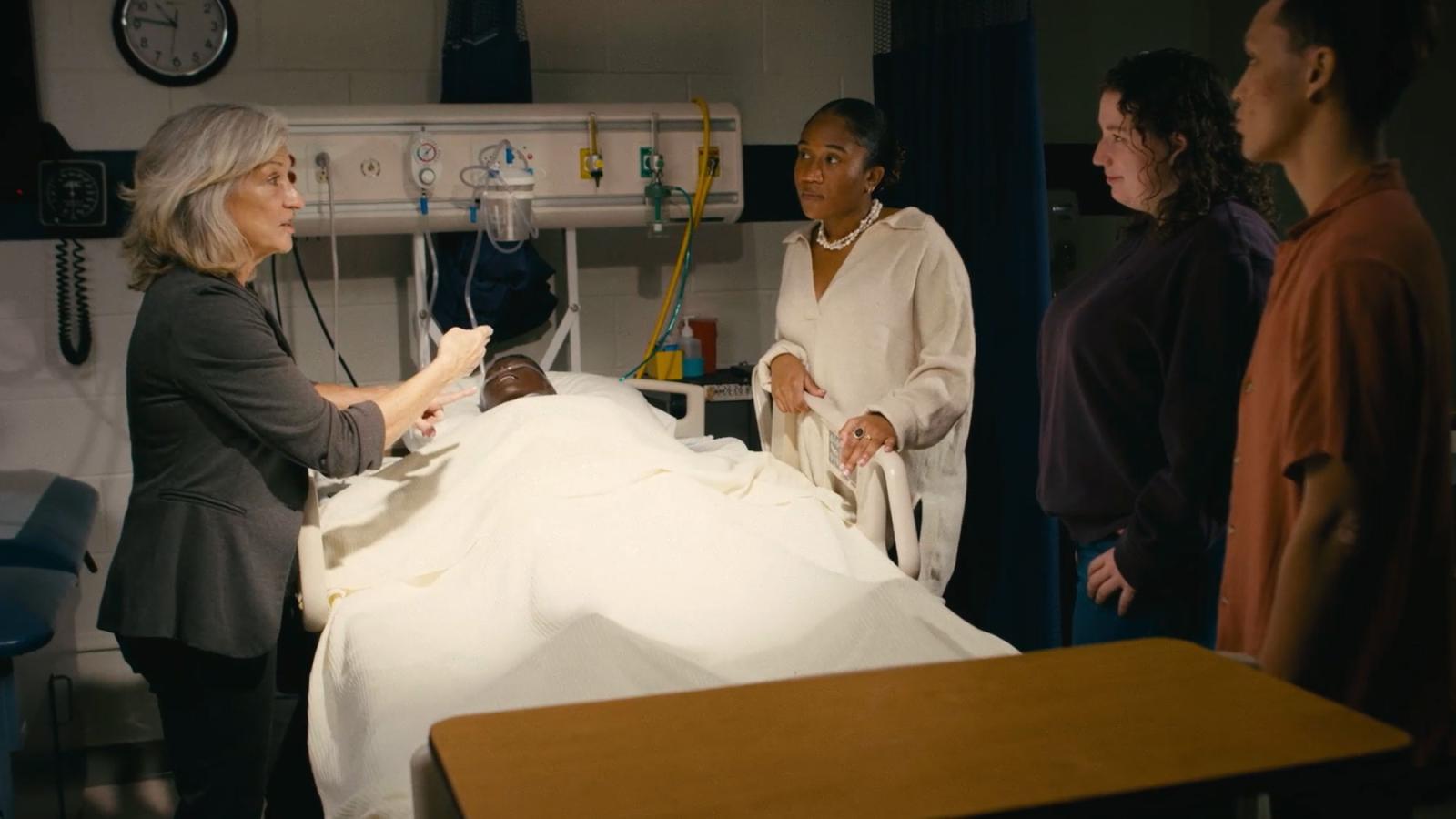
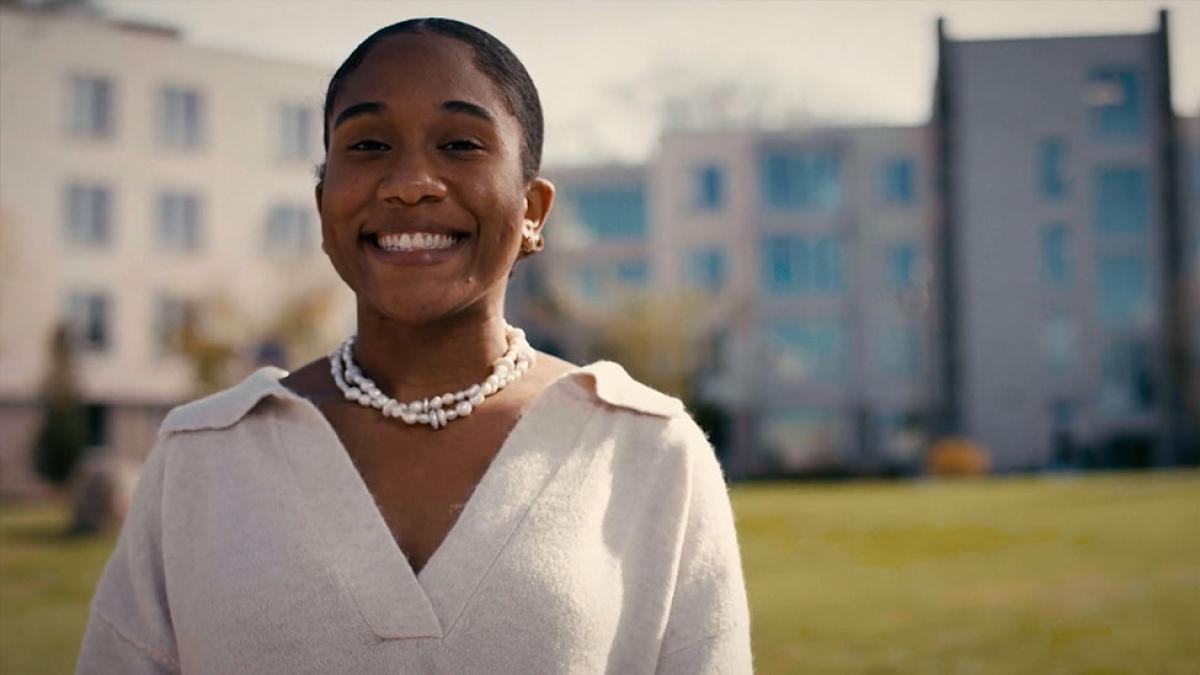
The need for nurses is greater than ever. In these historic times, nurses are still the most trusted profession. With a bachelor of science degree in nursing from Pace’s College of Health Professions, you will make a difference in your life and the patients and families you serve.
"You have to find that passion every day," says College of Health Professions alumna Tyra Prophete, RN. "I always knew I wanted to advocate for people."
More from Pace
With the help of a nearly $2M federal grant, this inaugural cohort of nursing students is poised to change the face of patient care.
Grainne McGinley was voted by her peers and faculty to address the College of Health Professions at Commencement 2022. At the heart of her journey as a first-generation college student is the spirit of service.
Pace University’s College of Health Professions has received a nearly $2 million federal grant to increase opportunities and retention for historically underrepresented minorities in the field of nursing.
Provisions: Donation Wish List
If you’re interested in supporting the NYC Campus food pantry, Provisions, here's how you can help. Check out this list of most-wanted items to help combat food insecurity on campus.
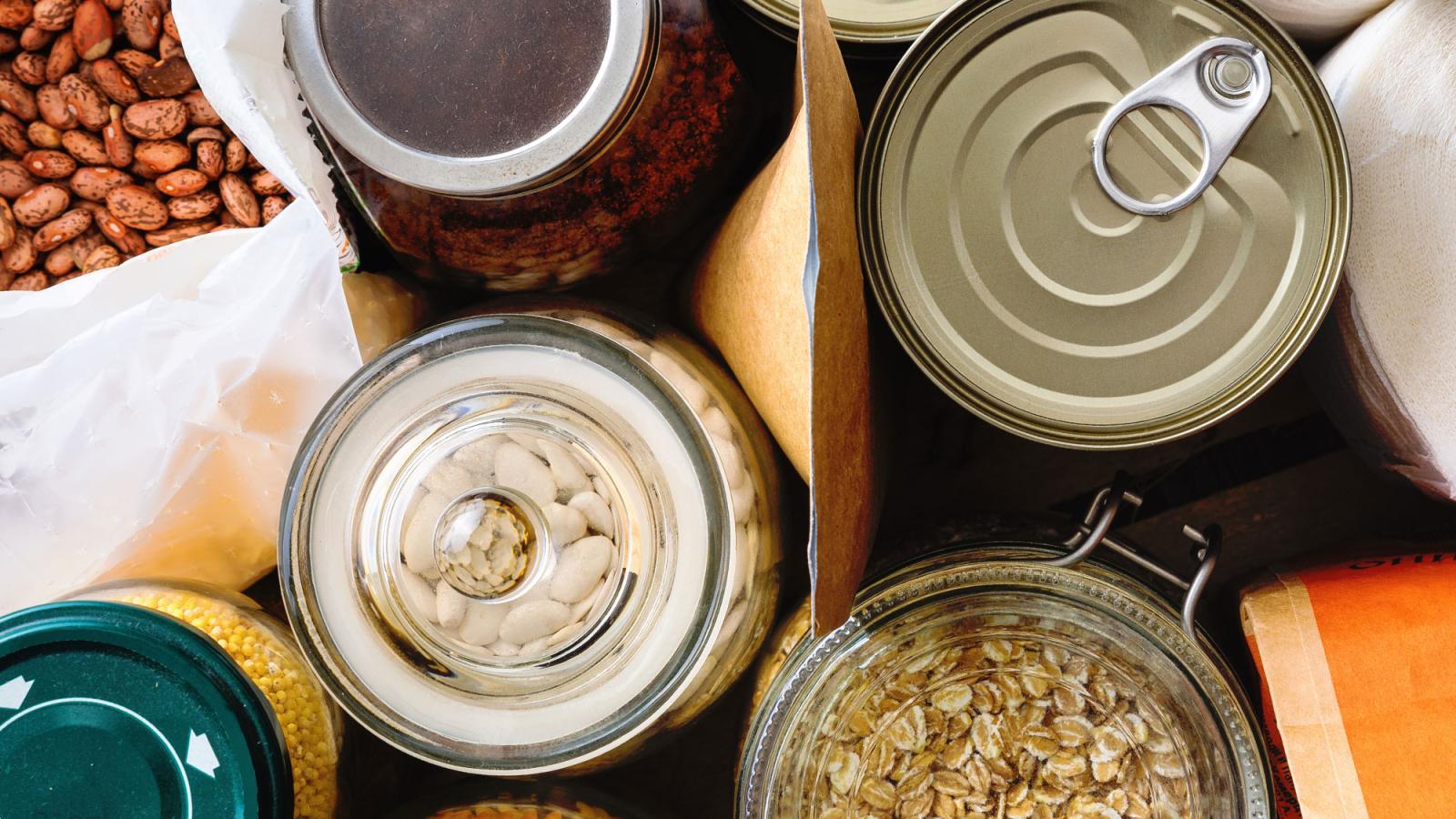

If you’re interested in supporting Provisions, here's how you can help. Start a food-drive in your department, faculty/staff councils, student organization, sorority or fraternity. The following is a wish list that will complement our larder. We ask that:
- Donations be in the form of cases
- To minimize waste, we discourage individual serve packages, wherever possible
- Gift cards from Trader Joe’s and/or Whole Foods is another option
- Check or money order payable to: Provisions—Office of Multicultural Affairs
Canned Fruit
- Peaches
- Pineapple
- Mandarin Orange Slices
- Mango Slices
Canned Vegetables
- Carrots
- Corn
- Diced Tomatoes
- Green Beans
- Sweet Peas
Canned Seafood
- Pink Salmon
- Sardines
- Tuna Fish
Canned Meat
- Corned Beef
- Spam
- Vienna Sausages
Canned Beans
- Baked Beans (non-vegetarian)
- Baked Beans (vegetarian)
- Black Beans
- Gandules/Pigeon Peas
- Garbanzos / Chick-Peas
- Kidney Beans
- Pinto Beans
Dried Beans/Legumes
- Pinto Beans
- Red Lentils
- Yellow Lentils
- Brown Lentils Green Spit Peas
- Black Beans
- Kidney Beans
Nuts
- Peanut Butter
Non-Dairy Milk
- Oat Milk
- Soy
- Coconut Milk
Fruit Juice (32oz.)
- Apple
- Cranberry
- Grape
- Mango
- Passion Fruit
Pasta/Rice/Whole Grains
- Assorted Pasta (Semolina)
- Assorted Pasta (Whole Wheat)
- Brown Rice
- Couscous
- Mac’n’Cheese
- Quinoa
- White Rice
- Wild Rice Blend
Cereal
- Bran Flakes
- Corn Flakes
- Oatmeal
- Raisin Bran
Oils/Vinegars
- Canola Oil
- Distilled Vinegar
- Coconut Oil
- Balsamic Vinegar
- Grapeseed Oil
- Apple Cider Vinegar
- Olive Oil
- Red Wine Vinegar
Condiments/Spices
- Kosher/Sea Salt
- Mustard
- Rosemary
- Black Pepper
- Mayonnaise
- Red Pepper Flakes
- Ketchup
- Garlic Powder
- Curry Powder
- Oregano
- Basil
- Rosemary
- Parsley
- Sazon
- Adobo
- Tomato Sauce
- Tomato Paste
- Agave
- Sugar
- Honey
Pasta Sauce
- Marinara
- Tomato with Cheese
Soup/Gravy
- Assorted Beef-based Soup
- Assorted Vegetable
- Hearty/Chunky Beef-based Soup
- Beef Ramen Soup
- Chicken Gravy
- Chicken Ramen
- Chicken Noodle
- Cream of Mushroom
- Tomato
- Hearty/Chunky Chicken-based Soup
- Shrimp Ramen Soup (Individual)
Donations may be dropped off/mailed to:
Pace University
Office of Multicultural Affairs
41 Park Row, Room 910
New York, NY 10038
For further information, contact Denise Belen Santiago, PhD, at (212) 346-1546 or dsantiago@pace.edu.
More from Pace
Across the country, nearly 40 percent of college students report going hungry, and 52 percent have utilized food pantry services at some point. At Pace, we’re working hard to help offset food insecurity on our campuses and we need your help to do it!
Through the U.N. Millennium Fellowship, three Pace students are innovating the way food insecurity is addressed on campus with the Fare Trade program.
Community led food pantries have been supporting Pace Community members facing food insecurity for many years. See the options in Westchester and New York City.
Supporting Food Assistance Programs at Pace
Across the country, nearly 40 percent of college students report going hungry, and 52 percent have utilized food pantry services at some point. At Pace, we’re working hard to help offset food insecurity on our campuses and we need your help to do it!
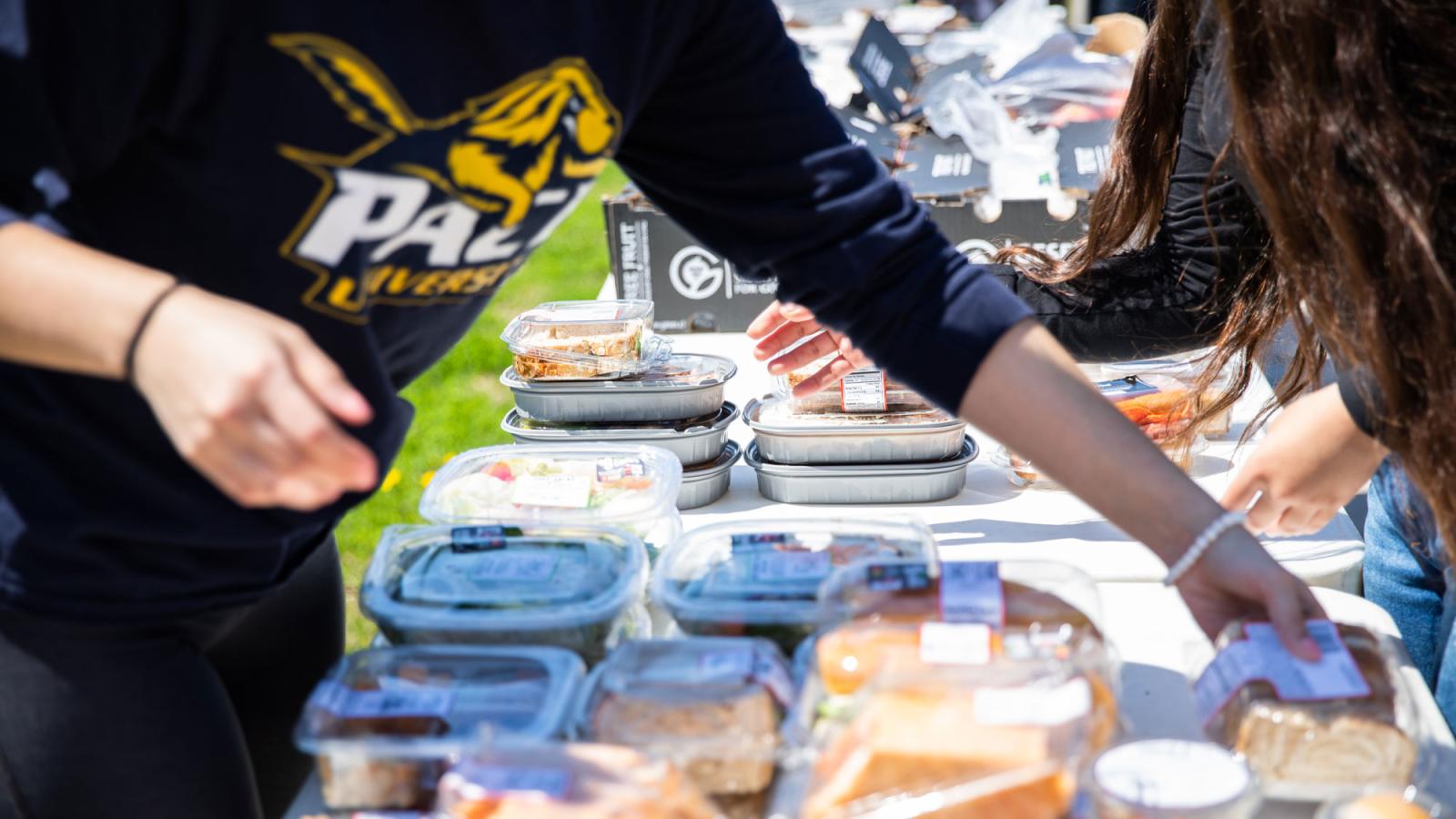
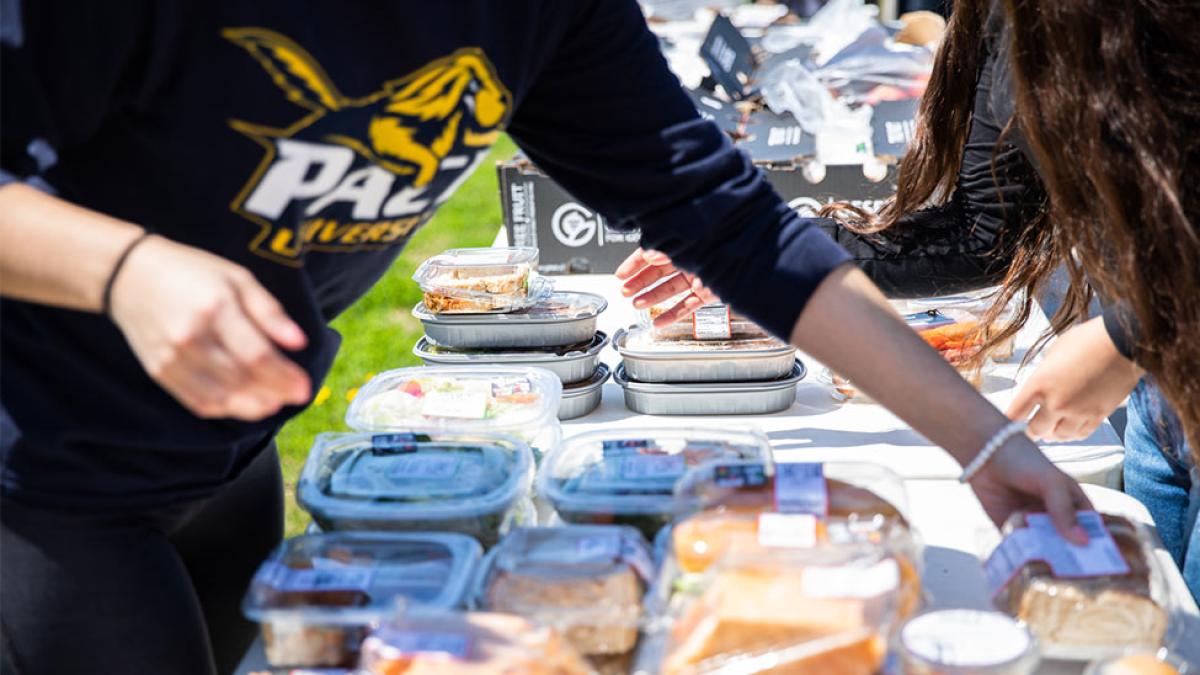
Across the country, nearly 40 percent of college students report going hungry, and 52 percent have utilized food pantry services at some point. At Pace, we’re working hard to help offset food insecurity on our campuses and we need your help to do it!
Whether you’re staff or faculty or a student at Pace, your support is critical to ensuring that our classmates, colleagues, and friends stay well-fed and don’t have to make the choice between tuition/rent/gas/utilities/heath care and going hungry.
Here’s how YOU can help:
New York City Campus
Donate to Provisions
Provisions, a Bhandari Jain Family Food Pantry, is open to all students, staff, and faculty, regardless of full-time/part-time status. Any member of our community that is experiencing food insecurity is welcome at Provisions during open hours. All guests will receive a one-week disbursement of non-perishable foods—and based on availability, fresh produce. See the list of most-wanted donatable items and how to donate them. Can’t donate food? Donate your time. Provisions always needs help shopping, bagging, stocking shelves, and identifying expiring foods.
Donate to Fare Trade
Fare Trade is a student-run mutual aid program designed to alleviate food insecurity on Pace’s NYC Campus. The program partners with Provisions, Chartwells, and Auxiliary Services to provide funds to food-insecure students. Students are encouraged to reallocate their dining dollars to the mutual aid fund by requesting a "Fare Trade" at the cash registers in the cafeteria. 1 Fare Trade is fifty cents and up to ten reallocations ($5.00) can be accepted per purchase. Learn more about how Fare Trade works and how you can donate. Looking for resources outside of Pace? The Fare Trade team has put together a list of city resources you may be eligible for if you are food insecure.
Donate to the Community Fridge
Chartwells, Pace’s food service provider, has placed a community refrigerator inside the Setters Lounge for donation and use by the Pace Community. Though it’s restocked regularly with items from the cafe, a little extra help from the community is always appreciated. If you’re planning to leave food for the community, be sure to label your items with dates, contents, and allergy warnings. We encourage you to leave fresh fruits and vegetables, pre-packaged sealed and unopened food; and dairy, bread, and eggs with clear expiration dates. Please, no leftovers, no homemade meals, no unsealed pre-packaged food, no expired food.
Westchester Campus
Donate to the Mobile Food Pantry
The Pleasantville Campus’ Mobile Food Pantry has been feeding the Westchester community since 2018. The pantry itself is the product of an award-winning partnership with the nonprofit Feeding Westchester. Feeding Westchester covers food costs, and Pace staff and students volunteer their time to ensure that the 100 or so people who utilize the pantry once a month can have access to nutritious food. While the Mobile Food Pantry is not accepting food donations right now (they have partnerships with local grocery stores), they do need donations of time—reach out to Wen Xi for information about how to volunteer.
Donate to the Community Fridge
Chartwells, Pace’s food service provider, has placed a community refrigerator right inside the main dining hall for donation and use by the Pace Community. Though it’s restocked regularly with items from the cafe, a little extra help from the community is always appreciated. If you’re planning to leave food for the community, be sure to label your items with dates, contents, and allergy warnings. We encourage you to leave fresh fruits and vegetables, pre-packaged sealed and unopened food; and dairy, bread, and eggs with clear expiration dates. Please, no leftovers, no homemade meals, no unsealed pre-packaged food, no expired food.
For more information about how to help or how to get help, contact Denise Belen Santiago, PhD, on the NYC Campus at dsantiago@pace.edu or Wen Xi on the Westchester Campus at wxi@pace.edu.
More from Pace
If you’re interested in supporting the NYC Campus food pantry, Provisions, here's how you can help. Check out this list of most-wanted items to help combat food insecurity on campus.
Community led food pantries have been supporting Pace Community members facing food insecurity for many years. See the options in Westchester and New York City.
Through the U.N. Millennium Fellowship, three Pace students are innovating the way food insecurity is addressed on campus with the Fare Trade program.
What Is Bad Faith in Mediation?
Haub Law Adjunct Professor Erin Gleason Alvarez provides insights on mediation with The New York Law Journal.

